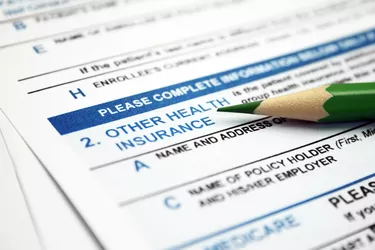
In health insurance, a "crossover claim" occurs when a person eligible for Medicare and Medicaid receives health care services covered by both programs. The crossover claims process is designed to ensure the bill gets paid properly, and doesn't get paid twice.
Two Different Programs
Video of the Day
Medicare is a federal program that provides health care coverage to people age 65 and older, as well as disabled adults. Medicaid is a combined federal-state program that covers low-income people regardless of age. Because of overlaps in eligibility, some people may be covered by both programs.
Video of the Day
Handling Crossover Claims
Rules for crossover claims are set by the federal Centers for Medicare & Medicaid Services. Health-care providers submit all crossover claims to Medicare. Medicare assesses the claim, pays its portion of the bill, and then submits the remaining claim to Medicaid. How much Medicaid will pay -- if anything -- depends on the rules in the state where the claim was filed. Once Medicaid has handled its portion of the bill, the claim is closed, and the provider may bill the patient or that patient's supplemental insurers for any unpaid portion.